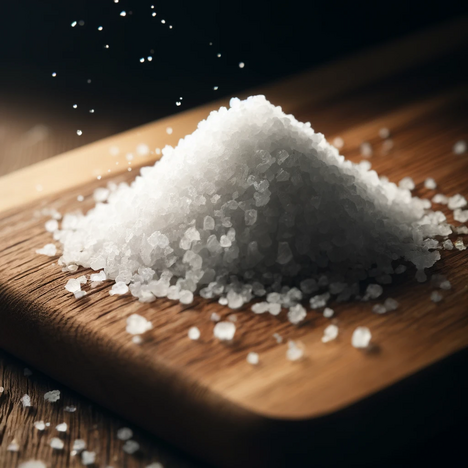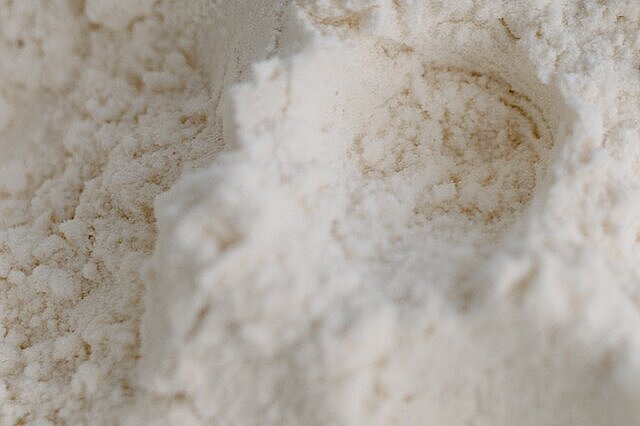Potassium propionate

In the constant search for safe and effective preservatives in dog food, we come across potassium propionate, a salt of propionic acid that is widely used in the food industry. But while its use in the preservation of human food is well established, its use in dog food raises questions. This article sheds light on what exactly potassium propionate is, explores its pros and cons, and offers an informed perspective on its role in the diet of our four-legged friends.
What is potassium propionate?
Potassium propionate is the potassium salt of propionic acid, a naturally occurring fatty acid found in some foods and in the bodies of mammals as a metabolic product. It is valued in the food industry for its antimicrobial properties, which make it useful for preventing mold and bacterial growth in baked goods, cheese and other perishable products.
The importance of potassium propionate in dog nutrition
Preservation
The main function of potassium propionate in dog nutrition is preservation. It helps to extend the shelf life of dog food by inhibiting the growth of mold and bacteria, which is especially important for moist food or in humid climates.
Safety
Compared to some other preservatives, potassium propionate is considered relatively safe and mild for both humans and animals. It is metabolized by the body and excreted with no known toxic side effects, making it a preferred choice in the food and animal feed industry.
Benefits of potassium propionate
- Extended shelf life: By inhibiting the growth of mold and bacteria, potassium propionate helps maintain the freshness and safety of dog food over time.
- Low toxicity: Its use in dog food is considered safe, with minimal risk of side effects when dosed correctly.
- Natural alternative: As a salt of a naturally occurring fatty acid, potassium propionate offers a less chemical-looking alternative to synthetic preservatives.
Possible disadvantages and risks
- Hypersensitivity reactions: Although rare, some dogs may be sensitive to potassium propionate, which can lead to gastrointestinal discomfort or allergic reactions.
- Limited effect: Its antimicrobial effect is specific and may not be effective against all types of spoilage organisms.
- Need for careful dosing: As with any additive, accurate dosing is crucial to ensure safety and avoid overdosing.
Potassium propionate offers an interesting option for preserving dog food by ensuring safety, freshness and a longer shelf life. Its low toxicity and ability to be naturally processed by the body make it an attractive choice for pet food manufacturers and dog owners alike. However, it is important to consider individual tolerance and watch for signs of hypersensitivity or side effects. Balancing the benefits of extended shelf life with the need to protect the health and well-being of our dogs, potassium propionate offers a compelling, if not universal, solution. As with all aspects of dog nutrition, the choice of ingredients should be based on sound information and careful consideration of the pros and cons.
If you notice any signs of hypersensitivity or poisoning in your dog, you should see your vet immediately. We are not a substitute for a vet, but we try to be as accurate as possible. Every dog reacts differently and we recommend you get a second opinion or consult your vet if in doubt.
Stay healthy and take good care of your four-legged friend!😊
Similar to Potassium propionate
Calcium propionate is a salt that is produced synthetically from propionic acid (E 280). Propionic acid is an organic acid that also occurs naturally in some foods such as cheese or sauerkraut....
Sodium propionate is the sodium salt of propionic acid, a natural organic acid found in some foods and also in the metabolism of higher organisms. Approved as E 281 in the food industry, it is...
Potassium sorbate is the potassium salt of sorbic acid, a natural organic acid found in some fruits such as berries. Potassium sorbate has an antimicrobial effect, i.e. it inhibits the growth of...
Calcium sorbate is the calcium salt of sorbic acid, a natural organic acid found in some plants. Calcium sorbate is produced synthetically and used as a preservative in food and animal feed. It...



